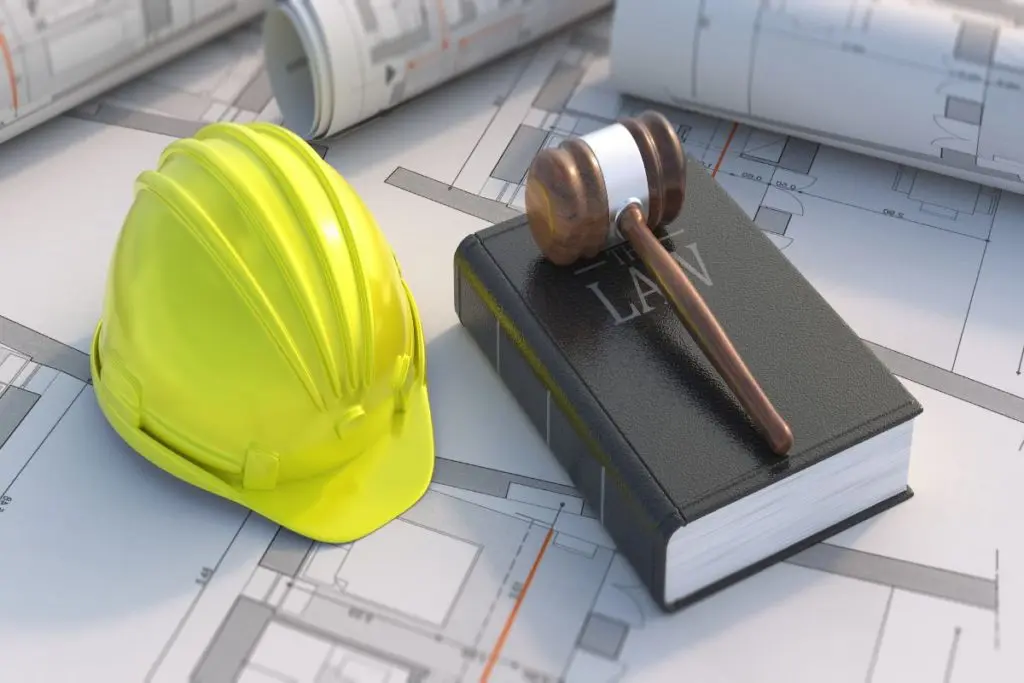4 Ways Legal Counsel Can Secure Your Next Major Construction Project
Embarking on a major construction project is an immense undertaking, involving significant financial investment, complex logistics, and a vast network of stakeholders. While architects, engineers, and contractors are essential to bringing a structure to life, the role of experienced legal counsel is equally critical to ensuring the project’s success from groundbreaking to completion. Overlooking legal guidance can expose a venture to unforeseen risks, from contractual loopholes and regulatory fines to costly litigation that can derail timelines and budgets.
Understanding the legal landscape is not just about mitigating risk; it’s about building a solid foundation for your project. This guide will explore four essential ways that trusted legal backup can support and secure your major site ventures, helping you navigate complexities with confidence and protect your investment.
1. Ensuring Regulatory Compliance
Navigating the web of local, state, and federal regulations is one of the most challenging aspects of any construction project. These laws govern everything from zoning and land use to environmental protection, building codes, and workplace safety standards. Failure to comply with any of these regulations can result in severe penalties, including hefty fines, stop-work orders, and even the revocation of permits. According to a report on construction disputes, regulatory issues are a frequent source of project delays and increased costs.
Legal counsel specializing in construction can proactively manage these challenges. They conduct thorough due diligence to ensure all necessary permits and approvals are secured before work begins. They also help interpret complex regulatory language, ensuring your project plans are fully compliant. For instance, a legal team can advise on stormwater management plans required by the Environmental Protection Agency (EPA) or ensure adherence to the Occupational Safety and Health Administration (OSHA) standards, thereby preventing costly violations and keeping your project on track.
2. Drafting and Negotiating Airtight Contracts
Contracts are the backbone of any construction project, defining the rights, responsibilities, and expectations of all parties involved, including owners, contractors, subcontractors, and suppliers. A poorly drafted contract can lead to misunderstandings, disputes, and significant financial losses. Ambiguous terms regarding scope of work, payment schedules, or change order procedures can quickly become points of contention.
An experienced legal team ensures that all agreements are clear, comprehensive, and protective of your interests. They can draft and negotiate contracts that precisely define project scope, establish clear payment terms, and outline a structured process for handling changes and unforeseen circumstances. For example, a well-written contract will include specific clauses on dispute resolution, such as mediation or arbitration, which can resolve conflicts more efficiently and cost-effectively than litigation. This legal foresight establishes a framework of accountability that minimizes the potential for disputes down the line.
3. Mitigating and Managing Risk
Construction is an industry fraught with risk. From supply chain disruptions and labor shortages to unexpected site conditions and design errors, numerous factors can threaten a project’s budget and schedule. Identifying and mitigating these risks from the outset is a key function of a construction law attorney. They can help you develop a comprehensive risk management strategy tailored to the specific challenges of your venture.
This includes advising on appropriate insurance coverage, such as builder’s risk and general liability policies, to protect against property damage and third-party claims. Legal counsel can also help structure contracts to allocate risk fairly among the various parties. For instance, a “force majeure” clause can protect you from liability for delays caused by events beyond your control, like natural disasters or pandemics. By proactively addressing potential liabilities, your legal team helps create a more predictable and secure project environment.
4. Resolving Disputes Efficiently
Despite the best planning, disputes can still arise. When they do, the cost and time involved in resolving them can be substantial. According to the Global Construction Disputes Report, the average value of disputes in North America is in the tens of millions of dollars. An experienced construction law attorney in Utah provides invaluable guidance in navigating these conflicts to achieve the best possible outcome.
Legal experts can represent your interests in various dispute resolution forums, from direct negotiation and mediation to arbitration and, if necessary, courtroom litigation. Their expertise in construction-specific issues allows them to effectively argue cases involving contract breaches, construction defects, or payment disputes.
By having a legal team ready to respond to conflicts, you can address issues swiftly and strategically, minimizing their impact on your project’s progress and your company’s reputation. This expert support ensures that disagreements don’t escalate into crises that jeopardize the entire venture.
Conclusion
The complexities of major construction projects demand a multi-faceted approach, and the strategic integration of legal counsel is a non-negotiable component of success. From the initial stages of ensuring regulatory compliance and crafting robust contracts to the ongoing efforts of mitigating risks and efficiently resolving disputes, legal expertise acts as a vital safeguard.
By partnering with knowledgeable construction law professionals, project owners can navigate the intricate legal landscape with confidence, protect their substantial investments, and ensure their ambitious construction ventures are completed on time, within budget, and to the highest standards. In a field where the stakes are inherently high, legal foresight is not just an advantage—it’s a necessity.
Also Read-How Smart Towing Practices Are Transforming Heavy-Duty Hauling

